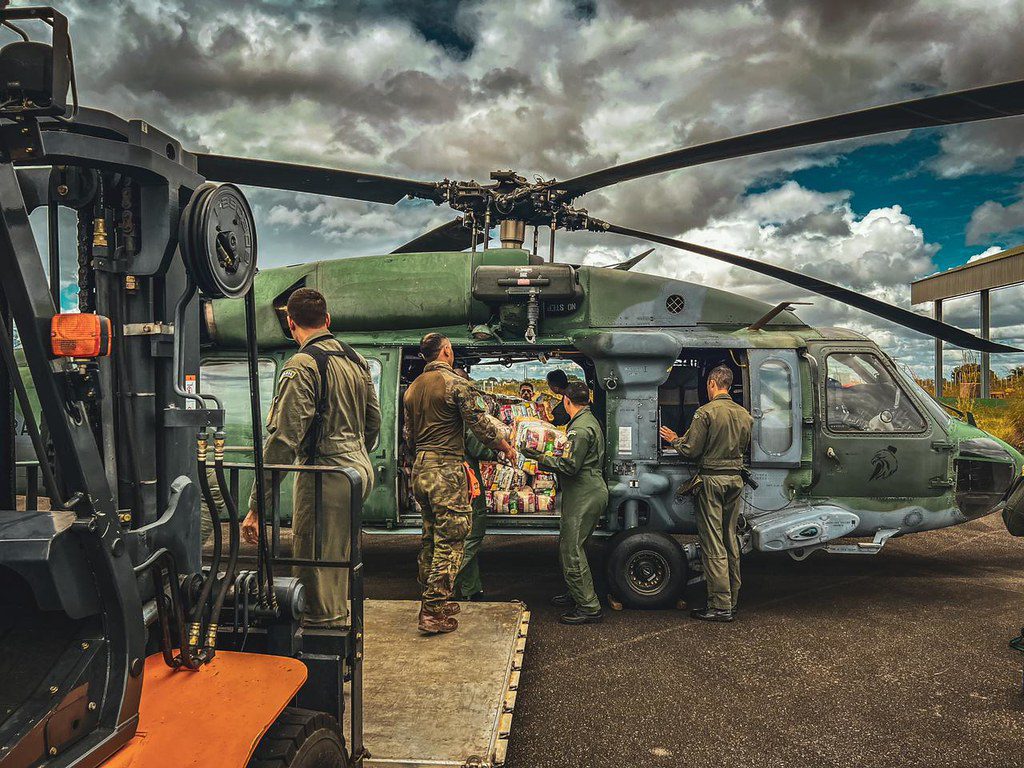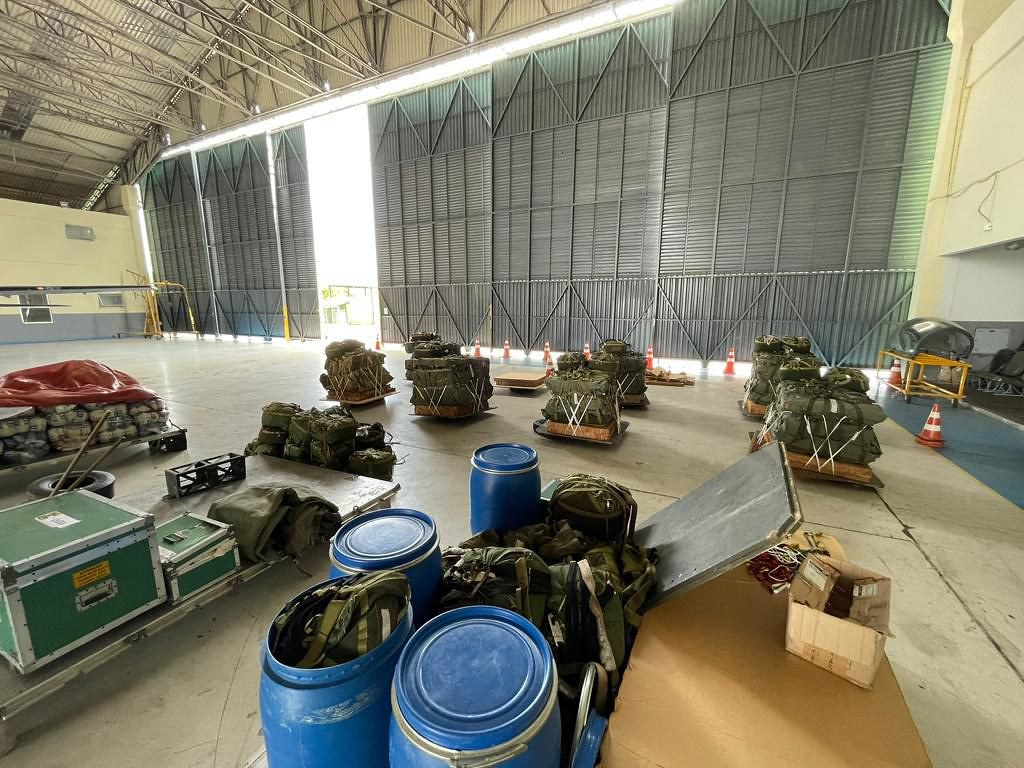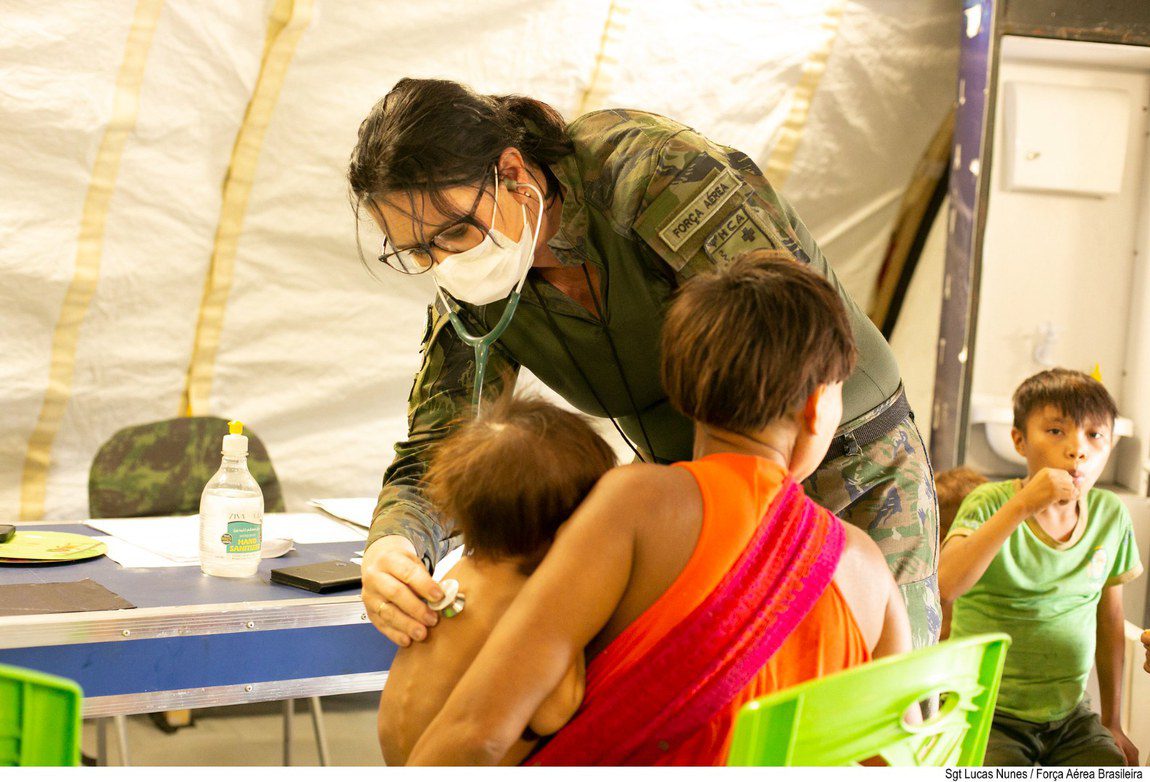In an integrated action of the Federal Government, the Ministry of Defense announced that it will provide logistical support to the Brazilian Institute of Geography and Statistics (IBGE) for air transportation of Census professionals, who will collect demographic information from indigenous people in Yanomami territory.
The action was articulated at a meeting held on Tuesday afternoon (14), between the Minister of Defense, José Múcio Monteiro Filho, and the Minister of Planning and Budget, Simone Tebet. The initiative is scheduled to start on March 6th.
Minister José Múcio recalled that the Armed Forces have employed various means of their logistical capacity for emergency assistance in the face of the crisis faced by the Yanomami.
“We will do the planning to see the best way to meet this important demand, employing the Armed Forces’ logistical means of transportation,” said José Múcio. According to the Minister, a new meeting will be scheduled with the President of IBGE, to settle the details of the action, which is coordinated by the Civil House of the Presidency of the Republic and has the participation of the Ministries of Health and Indigenous Peoples.
The Minister of Planning and Budget highlighted the importance of the joint action of the Federal Government. “The Demographic Census is one of the most important instruments we have in Brazil to know who we are, how many we are and how we, Brazilians, live. So it is the database not only of the ministries, but data from Brazil, from young people, from the Academy, from private service, from investors,” cited Tebet.
According to the Minister, the Demographic Census 2022 suffered delays due to the lack of resources forecast by the previous government.
Operation Yanomami: Armed Forces employ 15 aircraft and about 500 troops

The Armed Forces are currently mobilizing 15 aircraft and about 500 military personnel in the emergency assistance to the Yanomami and in the fight against illegal mining in Roraima. The action of the military in the region, through the Amazon Joint Operational Command, has helped the integrated work of the task force mobilized by the Federal Government. So far, 105 tons of supplies, medicines, and materials have been transported to help the Yanomami and 648 hours of flights have been conducted.
The Commander in charge of the Operation, Air Major Brigadier Raimundo Nogueira Lopes Neto, emphasizes the role of the Defense in the task force in support of the indigenous people. “The most important thing is that the Armed Forces are being employed here to provide logistical air support and intelligence support for the various government agencies that are operating in the area. The demands are requested from the Ministry of Defense, which passes them on to us, and we coordinate with them the best way to meet them,” he explained.
At the field hospital, set up by the Brazilian Air Force (FAB) and operating since January 27, multidisciplinary teams provided 1,268 consultations. The military also participated in the air transport of indigenous people for more urgent medical procedures in the capital Boa Vista.
Logistics – In the race against time, amidst the difficulties of access to the region, the Army and Air Force are working on the logistics of transporting food and medicines. Using parachutes, the materials are dropped off in Surucucu and transported to the Yanomami by helicopter, the only vehicle that can reach the territory, as well as small aircraft.
To improve access to the region and guarantee the landing of larger aircraft, the military is working on the restoration of the landing strip of the Army’s 4th Special Frontier Platoon, located in Surucucu. About 36 tons of repair equipment and materials have already been sent. The renovation is taking place during the morning and evening hours. In the afternoon, priority is given to aircraft transporting patients and supplies.
In the security area, the FAB has extended the partial opening of air space in the northern region until May 6. The objective is that non-indigenous people can leave the illegal mining areas in a coordinated and spontaneous way.
By Isabela Nóbrega and Suellen Siqueira

Special Advisory on Social Communication (Ascom) – Ministry of Defense (MD)
*** Translated by the DEFCONPress FYI Team***
